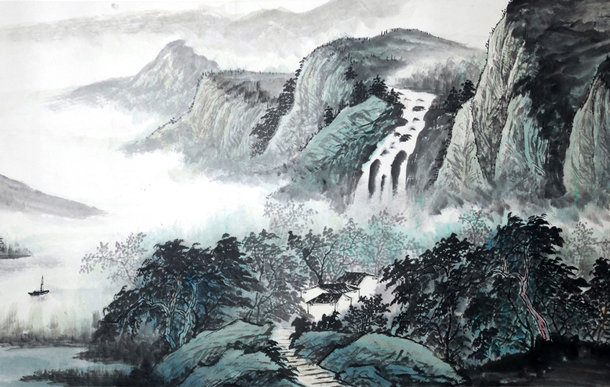Methods
What is Feng Shui?
Feng shui explores the interaction between people, space and time. The term “Feng Shui” directly translates to “wind and water” and has first been mentioned in a passage of the “Book of Graves” by the scholar Guo Pu (276-324). It reads:

Qi connects the so-called “three potentials”: human, time and space. Through analysing and evaluating the quality of Qi by means of Feng Shui methods, it is possible to provide specific information about the potential of well-being within your premises.
Professional Feng Shui is not a question of faith
Crystals, wind chimes, bamboo flutes – these design elements have no place within authentic classical Feng Shui. They stem from a simplified system that has been spread in numerous books.The concepts of classical Feng Shui are quite complex. They strive to make the structures behind the architecture and our physical surroundings visible. By means of the Feng Shui compass (Luopan) these structures, also called Qi patterns, can be calculated and analysed.
Professional Feng Shui always considers three levels of interactions: the human factor, time and space. For this reason, a full Feng Shui consultation not only analyses your living or working spaces, but includes a thorough examination of the individual circumstances, needs and desires of the people involved. This is to ensure that all recommended measures give you optimal support in your individual situation. Each recommendation for a redesign will take into account your own personal taste and will create an atmosphere especially customised for you. Good Feng Shui can be sensed, not seen.

